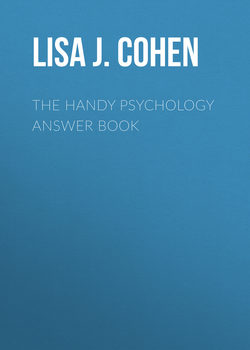Читать книгу The Handy Psychology Answer Book - Lisa J. Cohen - Страница 25
На сайте Литреса книга снята с продажи.
What are the four bodily humors?
ОглавлениеHippocrates (460–377 B.C.E.) was a brilliant physician who introduced the notion of the four bodily humors, a concept that would influence medical theories for almost 2,000 years. Hippocrates based his physiological theory on the ideas of another pre-Socratic philosopher, Empedocles (c. 492–c. 432 B.C.E.), who believed the entire world to be composed of earth, air, fire, and water. The bodily elements of black bile, yellow bile, blood, and phlegm corresponded with each of Empedocles’s four elements. Although Hippocrates attributed all mental processes (such as joy, grief, etc.) to the brain, he believed that both mental and physical health rested on a harmonious balance of the four bodily humors. Over five centuries later, the Roman physician Galen (130–201 C.E.) expanded Hippocrates’s ideas to create a typology of personality. The melancholic personality (from black bile) tended toward the depressed; the choleric (from yellow bile) tended toward anger; the sanguine (from blood) tended toward the vigorous, courageous, and amorous; and the phlegmatic (from phlegm) tended to be calm and not easily perturbed. Each personality type resulted from an excess of its respective bodily humor. Although modern science has disproved this theory, Galen’s terms are still used to describe personality traits.
